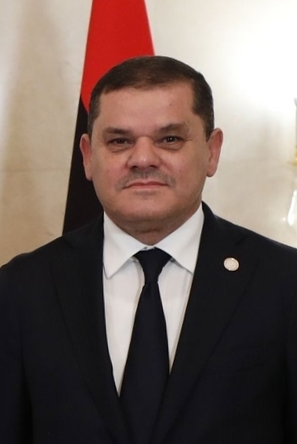“360° Cooperation with Libya.” But Which Libya?

All Global Research articles can be read in 51 languages by activating the Translate Website button below the author’s name (desktop version)
To receive Global Research’s Daily Newsletter (selected articles), click here.
Follow us on Instagram and Twitter and subscribe to our Telegram Channel. Feel free to repost and share widely Global Research articles.
***
On an official visit to Tripoli, President Meloni committed Italy to “360°all-round cooperation with Libya”. But which Libya? The Libyan “Government of National Unity”, “internationally recognized”, and chaired by Abdul Hamid Dbeibah. It was “elected” in 2021 in Geneva by a Forum of 73 “Libyan representatives” chosen and directed by the UN representative Stephanie Williams, a US State Department official.
Meloni’s meeting with Dbeibah was sealed by an 8 billion dollar agreement between ENI and the Libyan National Oil Corporation for the exploitation of an offshore gas field off the coast of Tripoli. However, this agreement was immediately disavowed by the Minister of Gas and Oil of the Dbeibah government, who declared it “illegal“. At the same time, in Tripolitania protesters occupied the control room of the Greenstream gas pipeline demanding to stop pumping gas to Italy.
This is the result of the fact that Italy does not recognize the real Libyan government: Prime Minister Fathi Bashagha, appointed by the duly elected Parliament, which provisionally operates from the cities of Sirte and Benghazi because the “Dbeibah government” militias prevent him from entering Tripoli. The Bashagha Government, which controls most of Libya’s territory and energy resources, offers Italy oil and gas at very low cost: as Michelangelo Severgnini showed in his reportage on Byoblu, in Benghazi petrol costs 3 cents of euro at the pump per litre. In compliance with NATO and EU directives, Italy refuses this possibility. Italian imports of Libyan gas have dropped from about 8 billion cubic metres per year before the 2011 NATO war to about 2.5 billion in 2022. Even if the agreement concluded in Tripoli becomes operational, Libyan gas imports could not recover to previous levels. Italy thus remains in the pincers of the “energy crisis”, deliberately provoked by the USA and the EU with the blockade of Russian gas supplies to Europe, paid for increasingly heavily by Italian and European citizens.
*
Note to readers: Please click the share buttons above or below. Follow us on Instagram and Twitter and subscribe to our Telegram Channel. Feel free to repost and share widely Global Research articles.
This article was originally published on byoblu.
Manlio Dinucci, award winning author, geopolitical analyst and geographer, Pisa, Italy. He is a Research Associate of the Centre for Research on Globalization (CRG).
Featured image: Abdul Hamid al-Dbeibeh (Licensed under CC BY 4.0)

